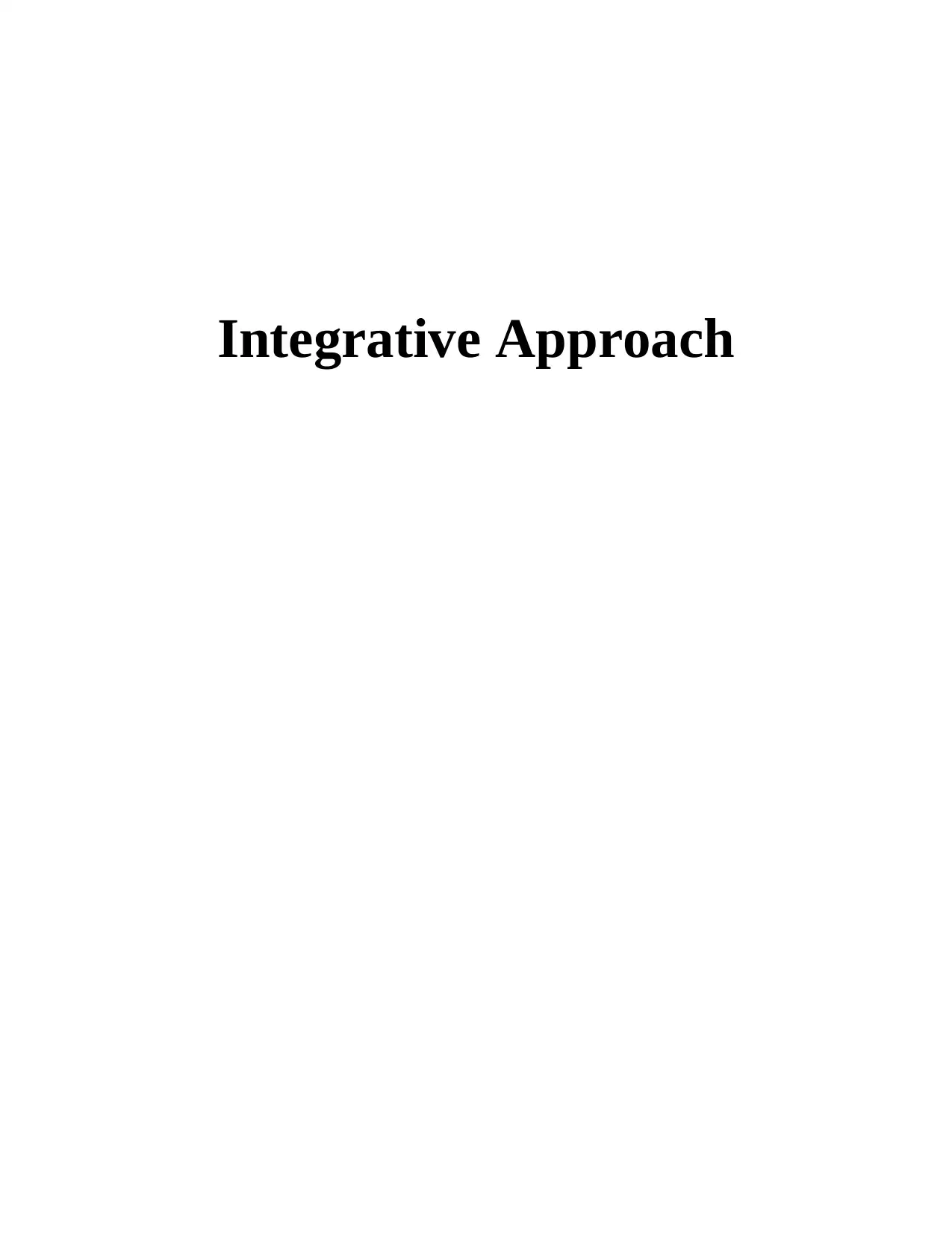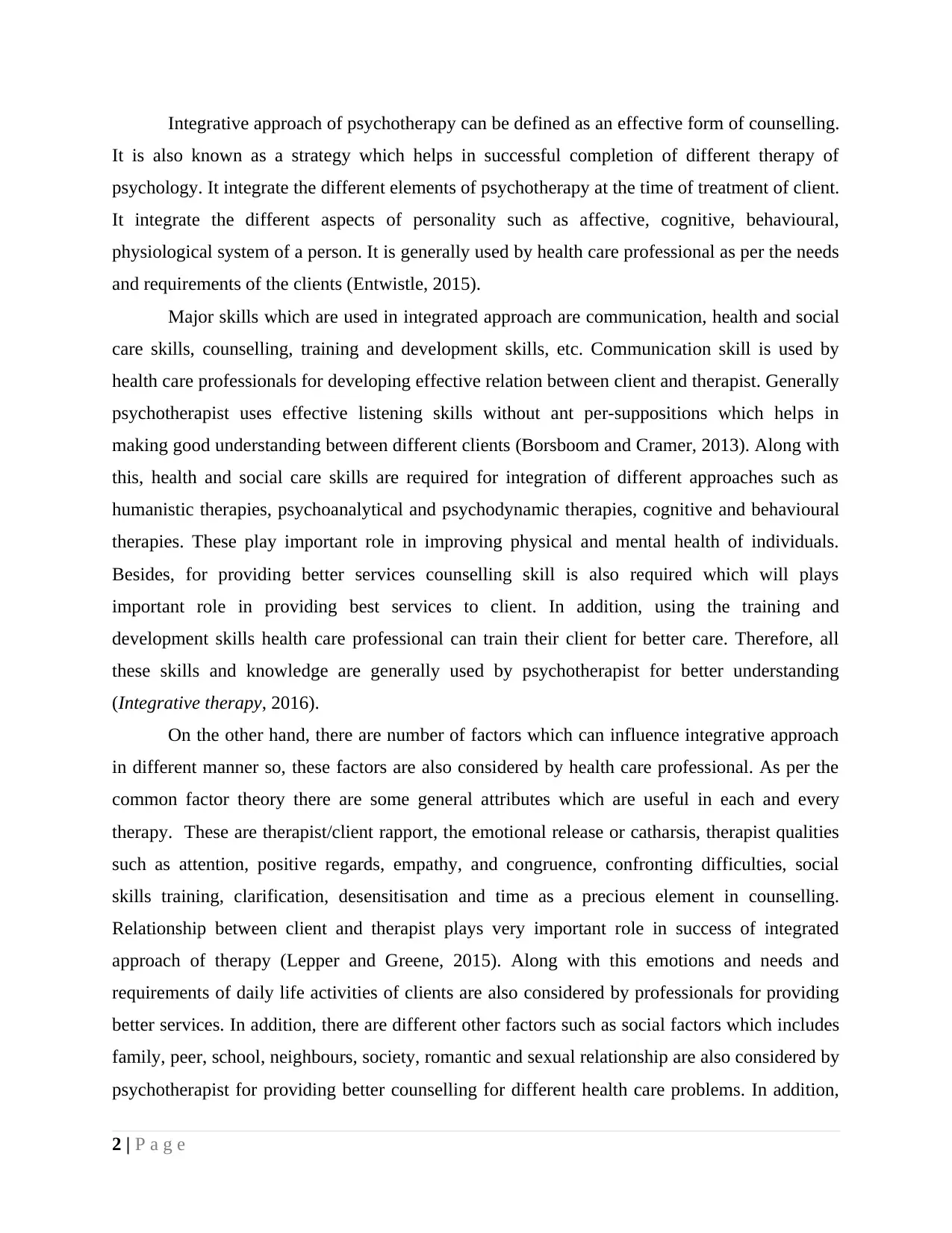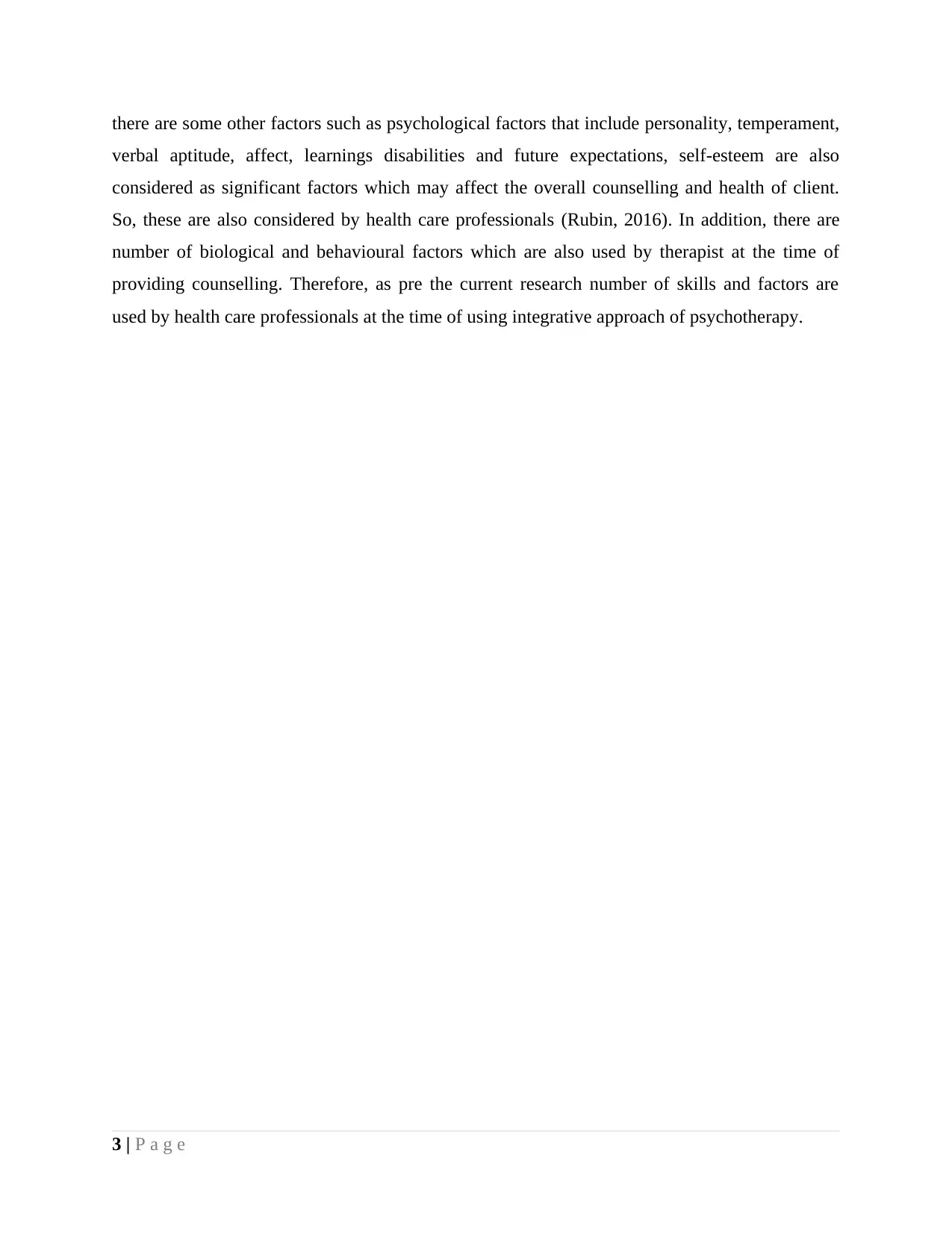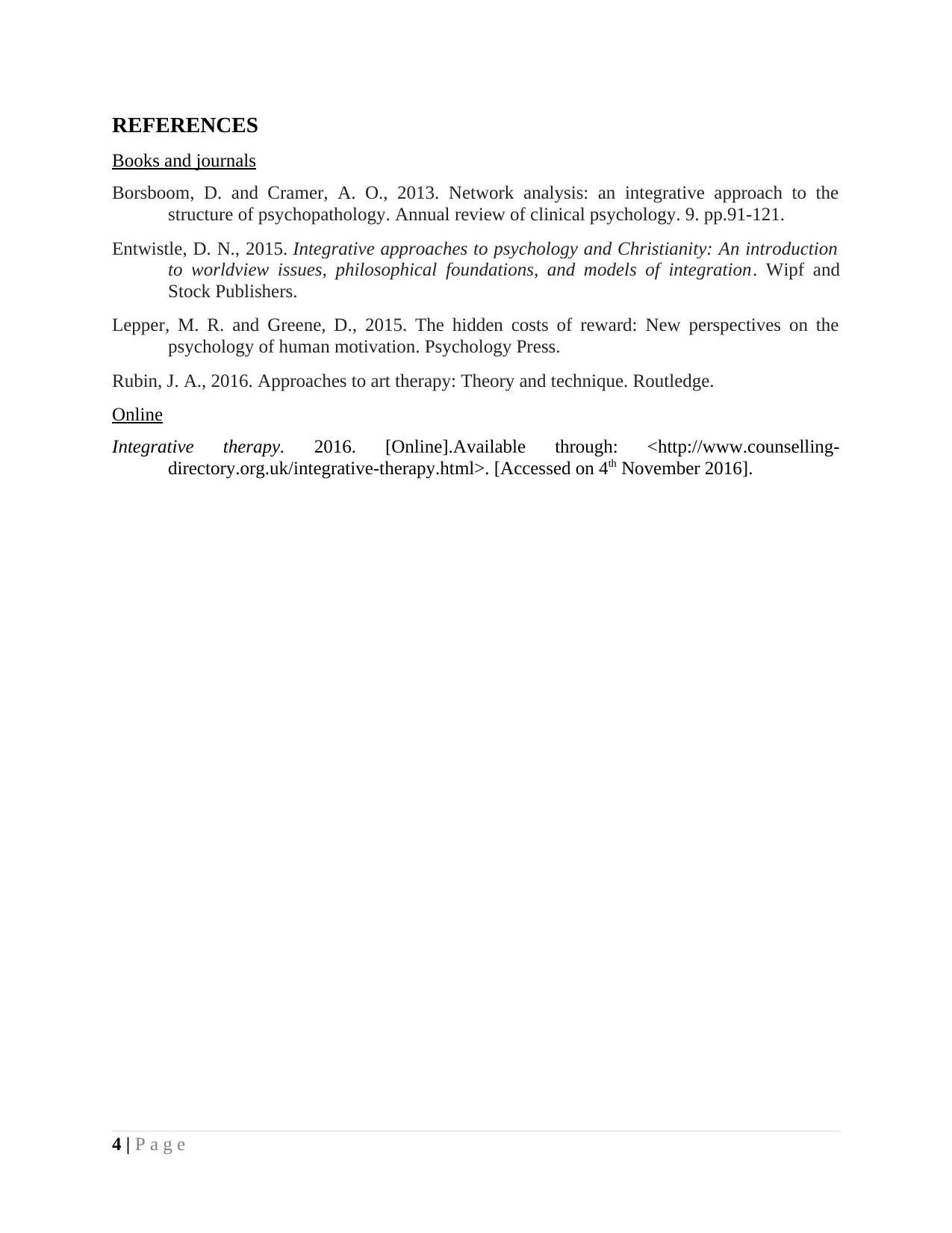Psychotherapy's Integrative Approach: Skills, Factors, and Techniques
VerifiedAdded on 2019/12/04
|4
|720
|162
Essay
AI Summary
The essay provides an overview of the integrative approach in psychotherapy, defining it as an effective counseling strategy that combines various elements of psychological therapies to address a client's needs. It emphasizes the integration of affective, cognitive, behavioral, and physiological aspects of personality. The essay highlights crucial skills such as communication, health and social care, counseling, and training and development, illustrating how they facilitate effective therapist-client relationships and improve client outcomes. It also discusses various influencing factors, including the therapist-client relationship, emotional release, therapist qualities, social factors (family, peers), psychological factors (personality, self-esteem), and biological/behavioral factors. The references include books and online resources that support the concepts discussed, providing a comprehensive understanding of the integrative approach and its practical application in healthcare.
1 out of 4










![[object Object]](/_next/static/media/star-bottom.7253800d.svg)